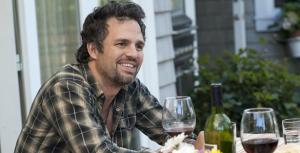Originally Posted August 17th, 2010
Arriving just in time to send the summer off in style, the year’s biggest art-house flick not involving Swedish goth hackers is The Kids Are All Right. The film, about the mounting struggles two women in a domestic partnership face when the biological father of their children reenters their lives, is both familiar in set-up, yet fresh in how it approaches the usual tropes of a modern family drama, with a maturity that’s both thoughtful, and warming.

Without preaching, The Kids Are All Right, manages to draw a well-realized portrait of a self-described “unconventional” family that deals with the same issues a thousand straight families have dealt with in other movies. Themes of love, growing up and sexual identity are all addressed here, and the film has nothing terribly new to add to the discussion of child rearing, just that a same-sex household faces the same hurdles as any other marriage. The film’s near ambivalence as to which sex combination makes up a family lets it stay more focussed on being one of the most sophisticated and delightful films of the summer.
Annette Bening and Julianne Moore star as Nic and Jules, a lesbian couple raising two teenagers in the wine-soaked hills of present-day California. Like many others living in relative luxury, their daily life is filled with quarrels about minor things, mostly involving their kids, but their's is a relationship that’s built on a solid foundation of trust, the likes of which is formed only after spending many years with another person. Nic’s perfectionism as the main breadwinner of the household can put her at odds with Jules’ more lenient approach to things, but their little spats dissolve almost effortlessly.

The strength of their relationship with one another seemingly carries over to their children, in parent-child dynamics that ares open and communicative, which alone is uncommon for most pictures dealing with parenting at middle age. There’s a moment where, after giving her rendition of a Joni Mitchell tune at the dinner table, son Laser jokingly tells Nic not to quit her day job, before returning with a compliment. It’s little moments like this where the kids channel the mostly tolerable embarrassment of living with your parents when you’re almost an adult, and they do so without ever resorting to the levels of overwrought angst and drama that commonly define onscreen teens.
Their daughter's final summer at home is interrupted when Laser, wanting to learn more about their biological father, gets in contact with the sperm donor that was used to conceive the half-brother and sister. The donor, Paul, played with relaxed aplomb by Mark Ruffalo, takes a shining to his two offspring, and quickly becomes increasingly involved in their lives, as well as those of Nic and Jules. Paul, an organic farmer and restaurant owner, while laid-back and maybe a little dim, is basically a nice guy who’s finally beginning to see what he’s missed out on by leading the bohemian life of the handsome bachelor, and the film respects him enough to create a character instead of just a roguish wedge used to drive a family apart. He inevitably does, of course, as everyone but Nic seems incapable of getting past his free-spirited charm, but again, the film is far too mature to let a single person be responsible for all the developing cracks in the household. Rather, The Kids Are All Right, serves as a lesson on how all the unspoken crap a family accumulates through the years can boil over when a new element is added to the status quo.

What’s most admirable about director Lisa Cholodenko’s picture is how little of the picture is centred on the idea that it’s one single issue that leads to this families eventual breakdown. The fact that the central relationship in the film is a homosexual is never given much mind by the characters, and any opinions on the idea of a same-sex family are left to the viewer alone. Having two mothers for parents is played for laughs where appropriate, mostly in bringing Paul up to speed on the situation, but it’s for the most part regarded as inconsequential, as you’ll quickly get used to Joni and Laser referring to their mothers in the plural. Similarly, having one kid born from each mother sets up an obvious dynamic of child against child as a proxy comparison of the mothers. Again, The Kids Are All Right doesn't take the simple route, and has far more much fun in showing how family members can be eerily similar, even if genetically unrelated . The main plot points of the film, such as the appearance of Paul and the looming end of Joni’s life at home, are seen as not the real issue here, they’re merely events that continue to chip at the foundations of one family's normal.
In broadening its scope beyond a single salient issue, The Kids Are All Right encounters its only real difficulty by adhering to the usual elements of the family drama, and beyond the premise, there’s not a whole lot about it that's groundbreaking. Affairs are had, tears are shed, and everything eventually gets more or less resolved by one big speech (granted, it’s a good one), which is a synopsis fitting of a hundred other pictures. While the film smartly refuses to exploit its premise for the sake of novelty, it makes this unconventional group's story feel surprisingly familiar, albeit one that’s better realized than most. Cholodenko’s dialogue is written for real people, youthful and realistic without straining to sound hip, and the script goes for modest, consistent laughs as opposed to great big gags that cash-in on setup. The acting is top-notch, most notably from the two leads, as Jules' strikingly poignant moments of self-reflection are countered with Nic’s social boozing, including a particularly funny tirade about California's progressive environmentalism. The state itself is gorgeously captured across expansive vistas and lavish meals, but the quality of the dialogue and acting are what give the film its own distinct flavour.

Much like the bottles of wine prominently displayed in the film, The Kids Are All Right is at first glance, a known quantity, featuring the usual bullet points found in most family dramas, seemingly distinguished only by a twist on the common premise. But thanks to Cholodenko’s charming characters and smart script, the rest goes down smoothly. The perfect summer film for the thinking person, The Kids is more than alright.
4 out of 5
Directed by Lisa Cholodenko
2010, USA

